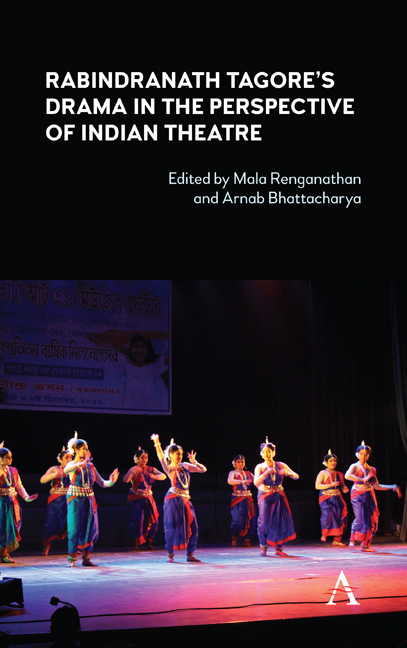Chapter 12 - Postmodern Subversion and the Aesthetics of Film Adaptation: The Example of Tasher Desh
Published online by Cambridge University Press: 20 January 2022
Summary
The chapter will explore a recent Bengali big-screen adaptation of Rabindranath Tagore's play Tasher Desh (2013) in the light of its postmodern performative experimentation with the form, content and ideologies of one of Tagore's most well-known plays. Tagore's works have always been adapted by Indian film-makers with an emphasis on his novels, novellas and short stories. The adaptation of his plays for the big screen is a less frequent affair in comparison with the overabundance of such performances on the stage. However, in the recent past, the director/screenplay writer Q (Qaushiq Mukherjee) has taken up the challenge to make his film on Tagore's play text.
As an experimental director from the Bengali film industry, when Q decides to adapt Tagore's drama on screen he also uses some standard postmodern devices of deliberate subversion and paradoxical imitation of the source text. Instead of trying to re-produce the film the way Tasher Desh is frequently revived on stage, he veers on avant-garde and innovative means of celluloid storytelling to enliven his work. This chapter will analyse the unusually experimental tools and devices he uses to revive Tagore's timeless classic. The main contention of this chapter is how Q's film appropriates and adapts Tagore's drama for the present-day audience and acquaints them with the postmodern textual forms of narrative subversion and radical experimentation. This will also entail critical explorations of the ethical dimensions of (ab)using a canonical text and a discussion of the aesthetic aspects of the literature/film divide.
It also needs to be borne in mind that by choosing to rework Tasher Desh on big screen Q engages with two kinds of performance traditions available and168 familiar in relation with Tagore's works. One tradition is that of the regular performance of Tagore's plays and dance dramas on the Bengali stage and another is the cinematic tradition of adapting Tagore's narratives for the big screen. Q absorbs components from both these performance traditions while at the same time is cautious to maintain a critical distance with them to display his prominent disavowal of these established representational practices.
- Type
- Chapter
- Information
- Rabindranath Tagore's Drama in the Perspective of Indian Theatre , pp. 167 - 180Publisher: Anthem PressPrint publication year: 2020



